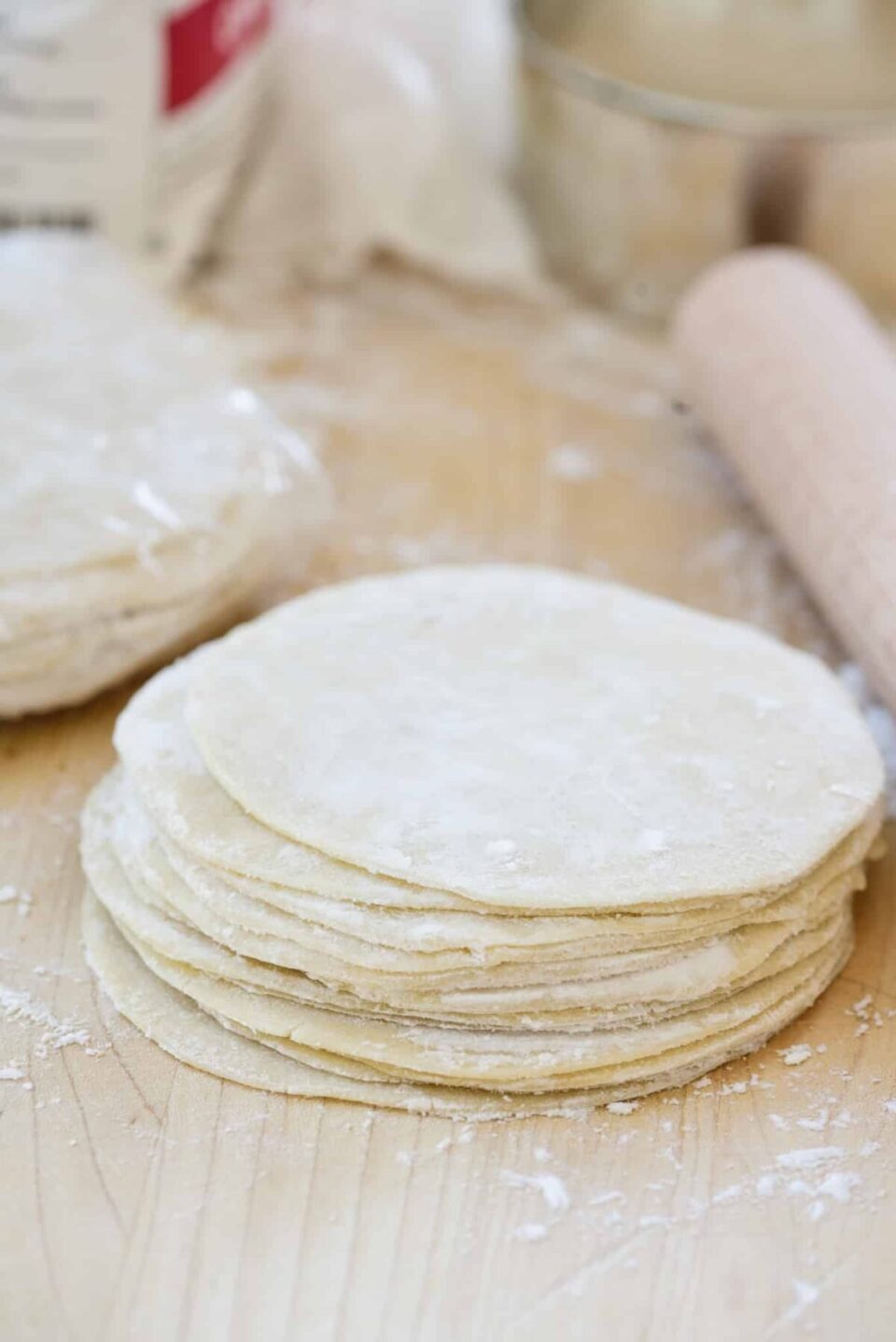Preparing ravioli rolls at home is simpler than you might think. All you need is good old all-purpose flour, salt, and water. The result is tender, chewy shells that are easy to work with.
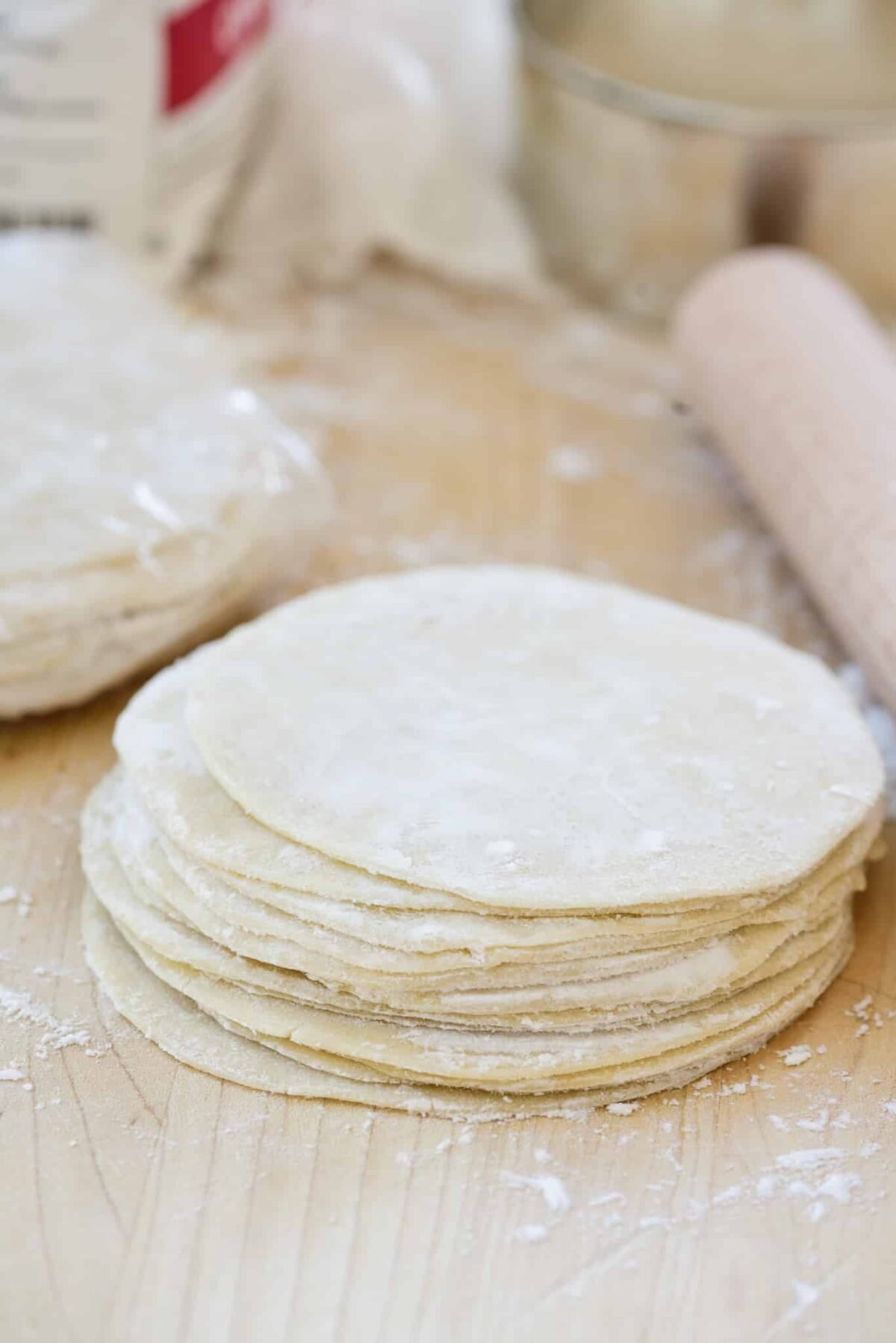
Over the years I have made countless dumplings (mandu, 만두). I sometimes use store-bought wrappers (mandupi, 만두피) to save time and effort. But I love making dumplings with homemade dumpling wrappers. Obviously it involves a bit of work, but it’s totally worth it! Freshly made ravioli wrappers are softer, chewier and tougher to work with and do not tear easily. They also taste much better.
Making your own ravioli wrappers also means you have total control over the size and thickness. It’s also much easier to shape the ravioli however you like. Some of the most common types of Korean dumplings, such as kimchi mandu, are made with a hearty filling made up of several ingredients: vegetables, tofu, meat, and sometimes starchy noodles (dangmyeon, 당면). Homemade wraps are perfect for them.
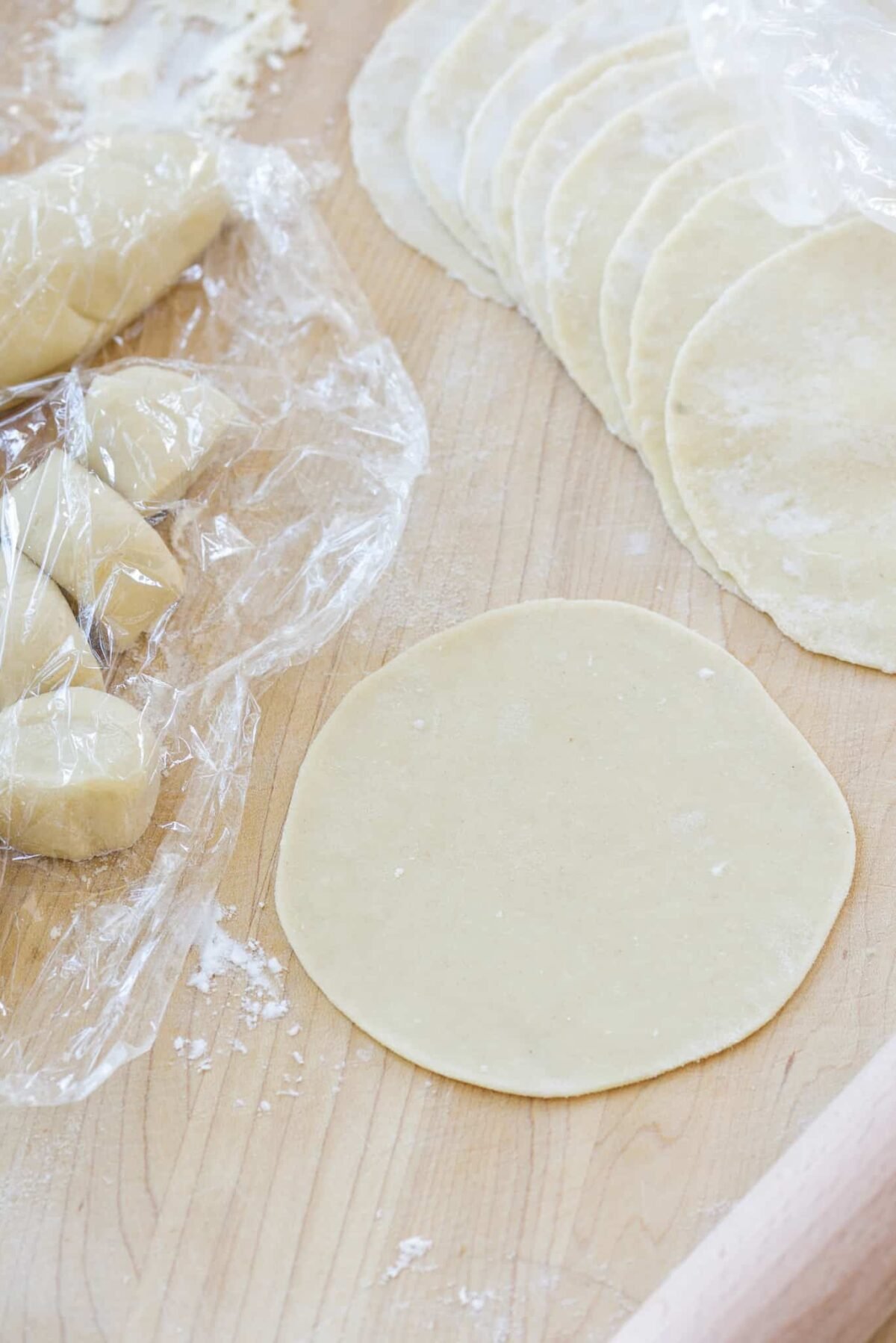

How to prepare rolls for ravioli
Flour
I use unbleached all-purpose flour. Depending on the flour and how it is measured, 1 cup of all-purpose flour can weigh very differently. My cup usually weighs around 140 grams. However, don’t worry about measuring your weight exactly if you don’t have a scale. For the gnocchi dough, you can always adjust it by adding a little more water or flour, as appropriate, to make the dough soft enough to be pliable but not too soft.
All-purpose flour is called joong-lyuk-boon (중력분), if you buy a Korean brand.
Hot water versus cold water
Hot water partially inhibits gluten development by denaturing flour proteins. It also cooks (or gelatinizes) the starch. The result is a dough with more water but not as elastic as dough with cold water. The higher water content helps the dumpling skins stay tender after cooking. As a result, it is great for steaming or pan cooking where the dumplings will not absorb much water while cooking. Less gluten means the dough is not elastic so it is easier to roll out.
On the other hand, cold water dough contains less water and more gluten, which makes the dough elastic, tough and strong. Accordingly, for boiled dumplings, dough in cold water is more suitable. The dough in cold water will spring back slightly when you roll it out.
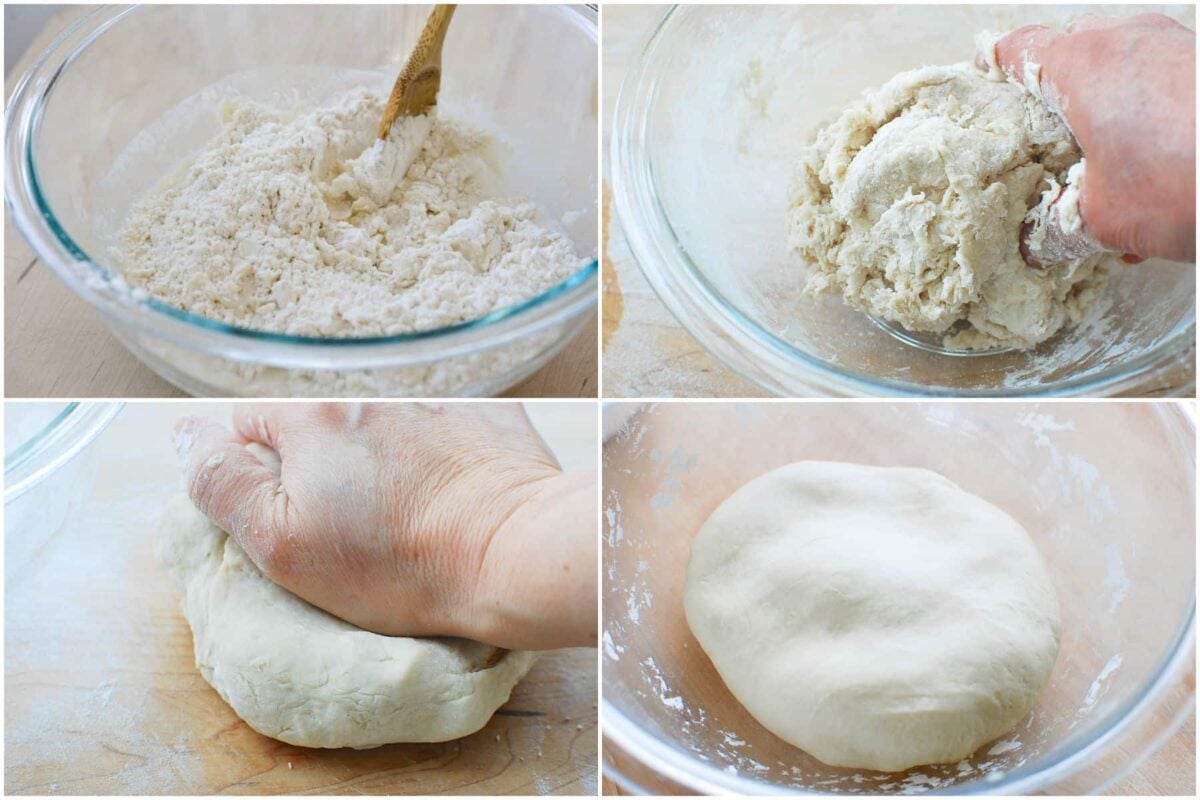

Knead the dough
Depending on the flour, the amount of water needed may vary. So, it’s important to feel the dough and adjust the moisture level if necessary, adding a little more water or flour if necessary. Once a dough has formed, knead it for about 5 minutes. The dough should be quite smooth but slightly hard. It will relax after resting for about 30 minutes and become soft and flexible.
Roll the dough
I find it most efficient to cut the dough into wrapper-sized pieces and roll each out. If using this first method, a small rolling pin is useful. You don’t need to roll the dough out into a round shape, but feel free to use a round cutter, if available, to cut it out nicely.
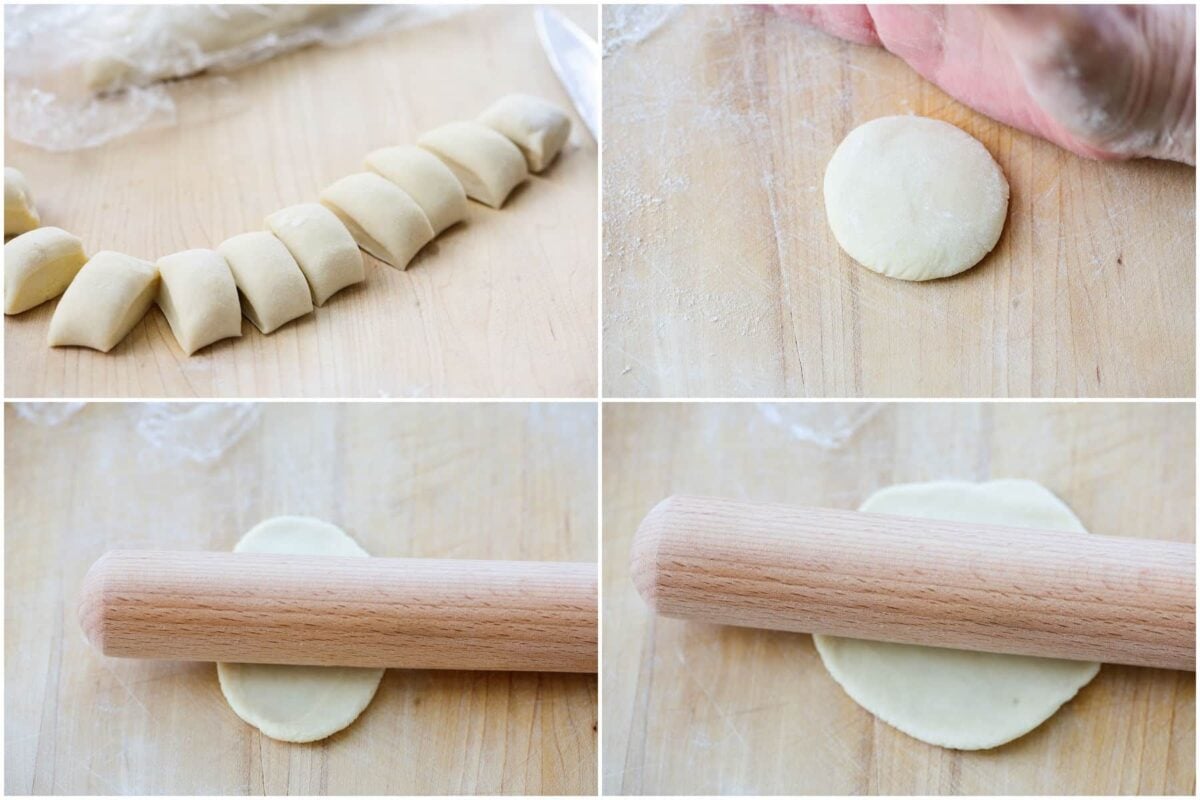

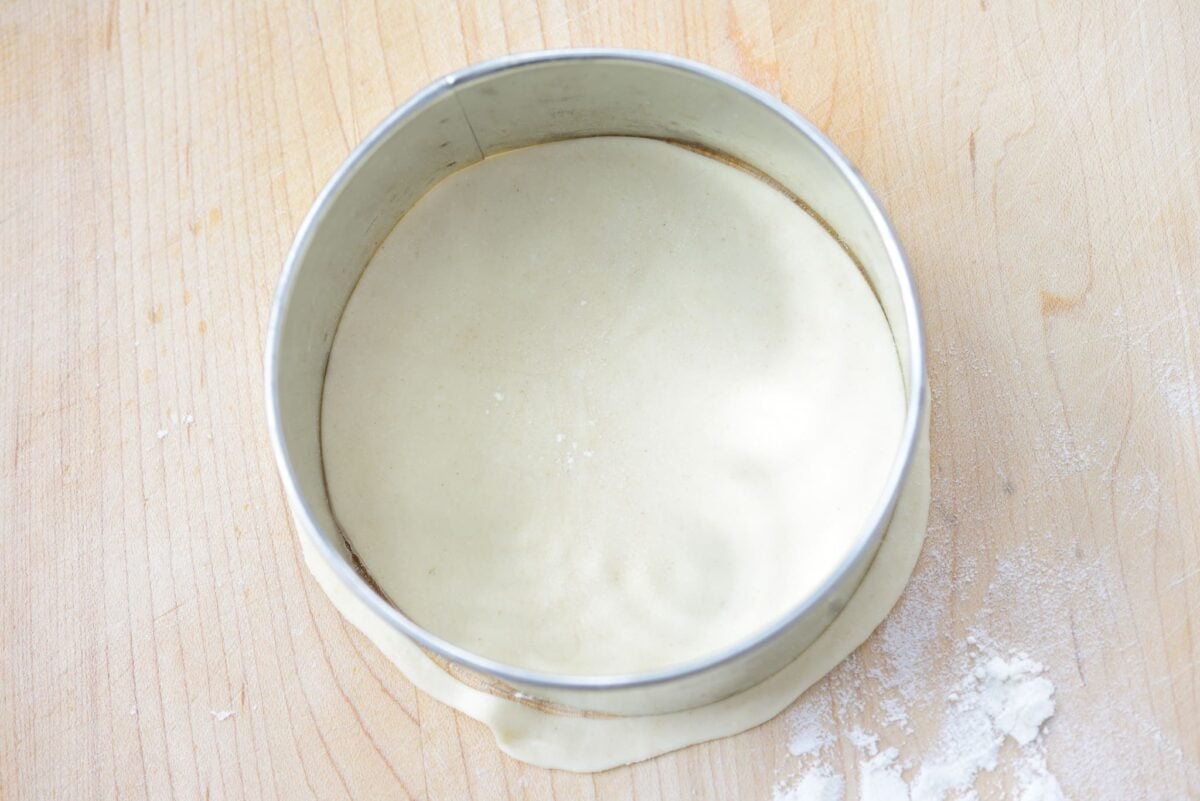

Another method is to cut the dough into two or three large pieces, roll them thin with a large roller, and cut out as many rounds as possible with a round pastry cutter. You can reuse the dough scraps to make more rounds. If the scraps have dried out, you can add a little moisture by wetting your hands before working with them.
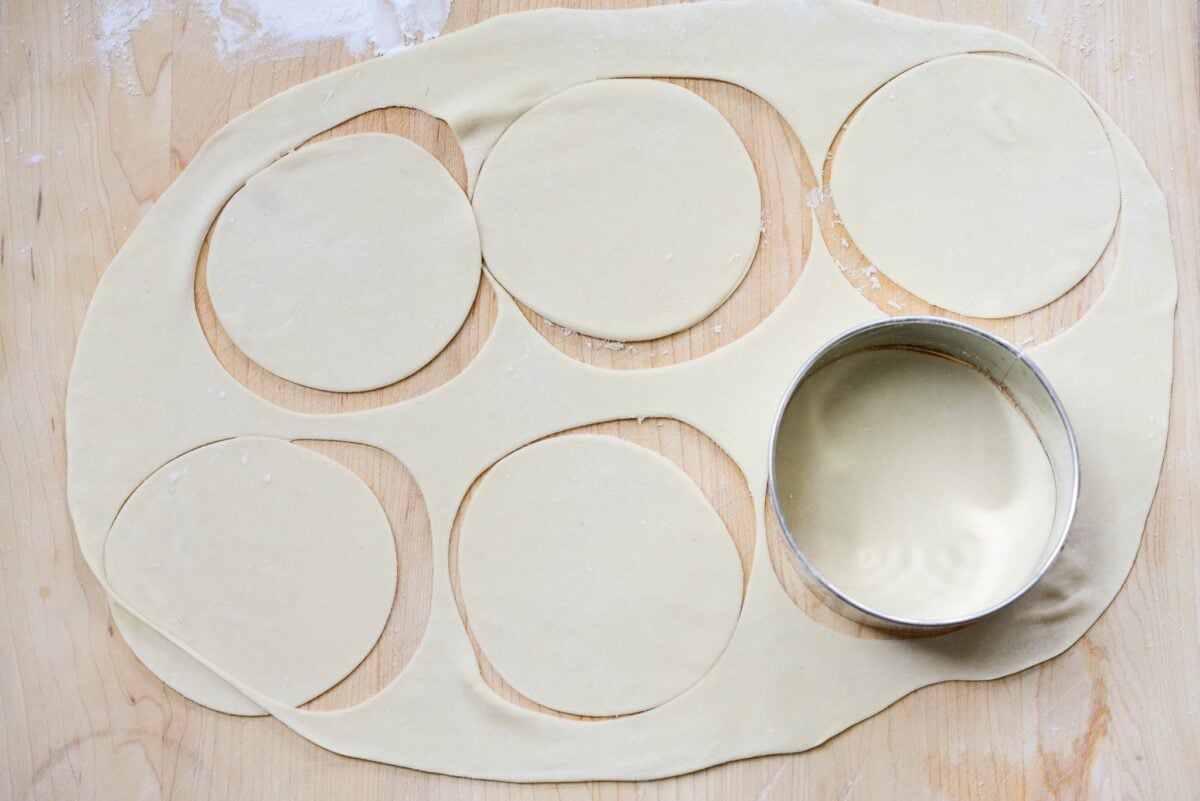

Tips for Homemade Ravioli Wrappers
- A small rolling pin is useful for rolling out small pieces of dough.
- Flour the surface and the dough while rolling it out.
- If you want the wrappers to be evenly round, use a round cutter (cookie cutter, wine glass, etc.).
- Always cover dough and wrappers that are not being used with cling film or a damp towel.
- It’s best to use homemade dumpling wrappers immediately after making them. Make a few, fill with filling, fold and repeat.
- If stacking wrappers for later use, dust each wrapper generously with cornstarch or potato starch. The flour will not work because it will be absorbed into the wrappers.
- For storage, double-protect the ravioli wrappers by first wrapping them in plastic wrap and then placing them in a storage/freezing bag. You can store the dough in the refrigerator for up to 2 days or freeze it immediately for longer storage. Bring them to room temperature before using.
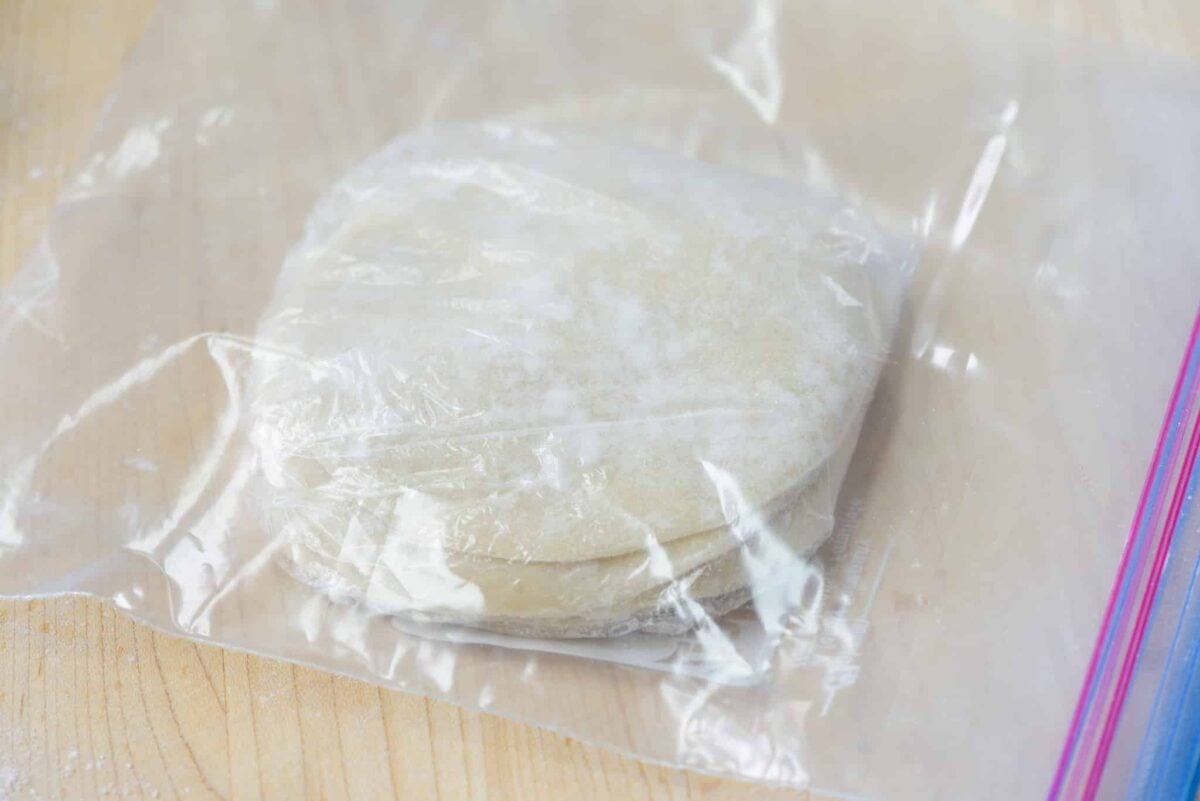

Colorful gnocchi dough
You can add natural color to your ravioli wrappers. For the green dough I use spinach or chives. Beets are great for pink/red dough and carrots for orange dough. Simply cook the vegetables, blend them and filter them to obtain a colored liquid for the dough.
Try the same technique to make colorful homemade noodles for kalguksu (knife-cut noodles).
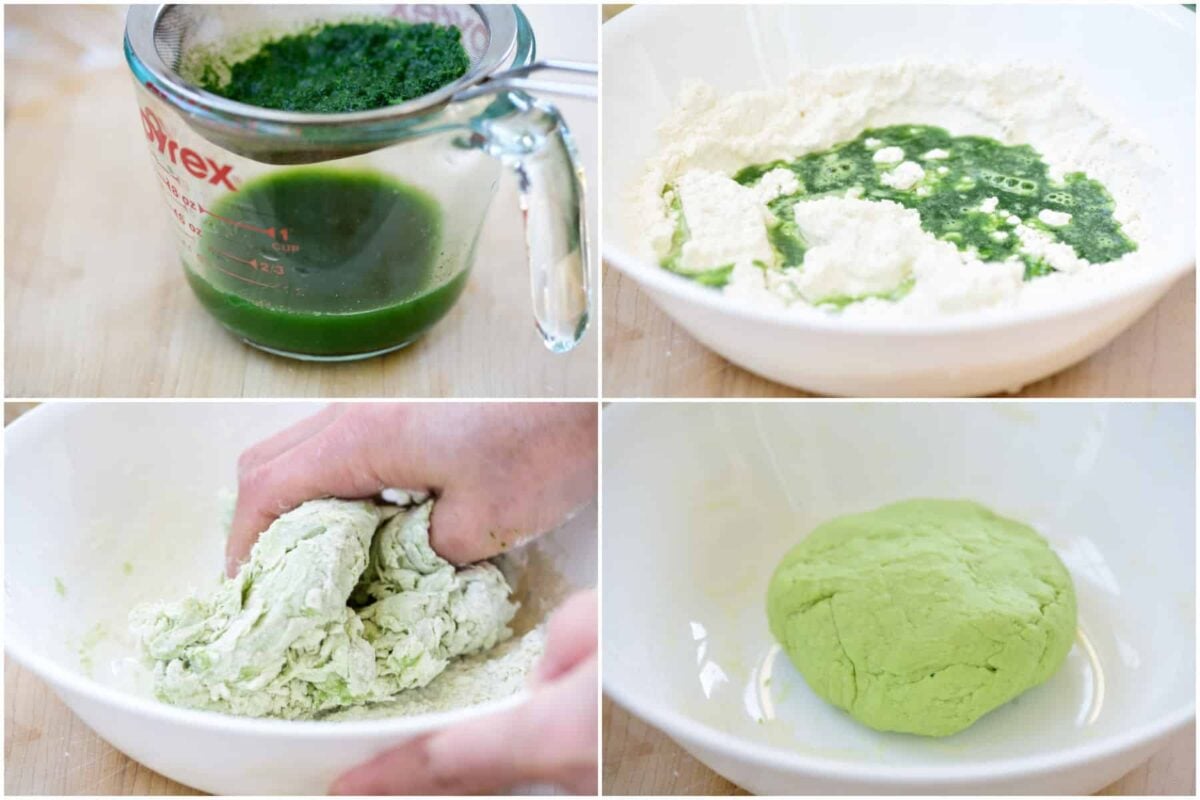

Gnocchi Recipes
Dumplings (mandu)
Kimchi Mandu
Shrimp dumplings (saeu mandu)
Hobak mandu (vegan dumplings)
See how to do it
For more Korean cuisine inspiration, read on YouTube, Pinterest, Twitter, FacebookAND Instagram.
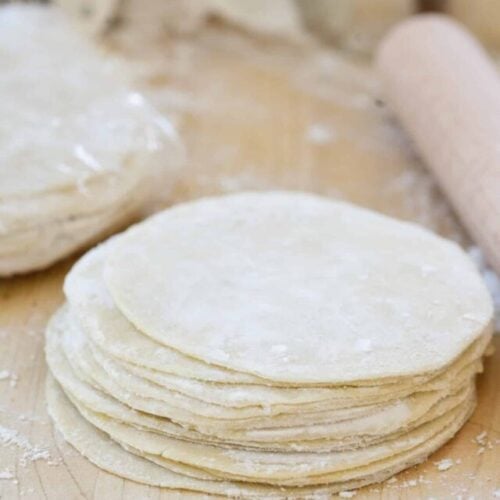

How to make homemade dumpling wrappers
Appetizers
Portions: 32 casings
Print recipe
Instructions
For green pasta
-
Blanch the spinach in boiling water. Puree in a food processor. Pass it through a sieve, pressing with a spoon, to extract the green juice, about 2/3 cup. Add water if necessary. Heat it in the microwave to about 170°F. Follow the same steps for the wrappers above.
Notes
- You can use cold water if you plan to boil the dumplings. Dough in cold water is more elastic and will be slightly more difficult to roll out.
- If stacking wrappers for later use, dust each wrapper generously with cornstarch or potato starch. The flour will not work because it will be absorbed into the wrappers.
This ravioli wrap recipe was included in my shrimp ravioli recipe. I’ve moved it here as a separate post with more information and new photos. It truly deserves its spotlight.

